What we’re learning about financial capability. We need to talk about money.
16 October 2025
Booster Foundation article for Philanthropy News Corporate Philanthropy Edition
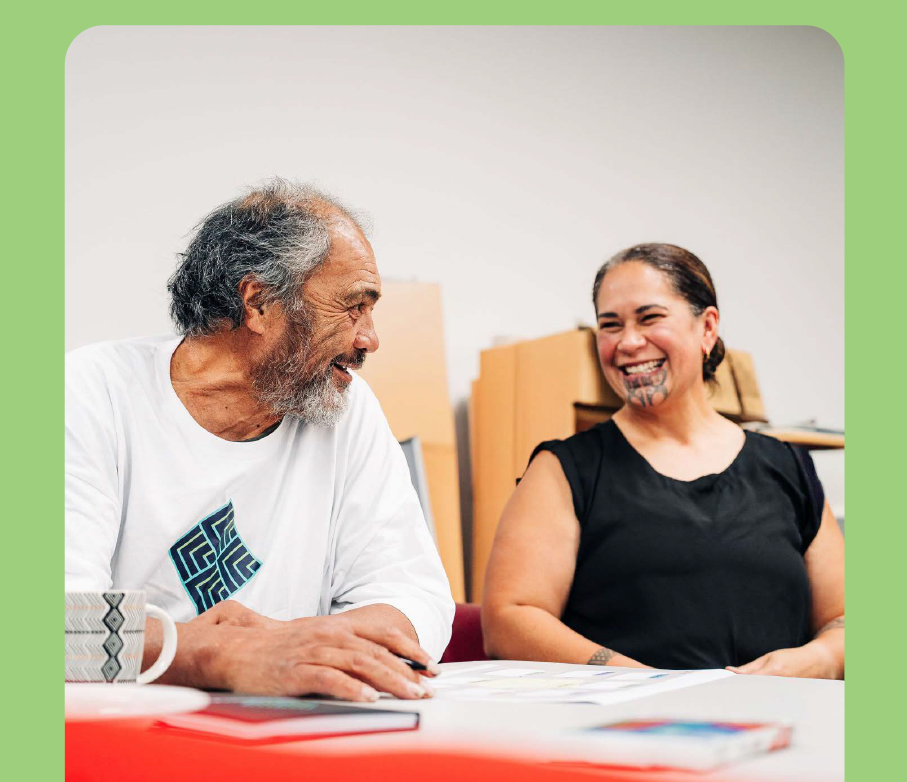
There’s no doubt that New Zealanders have been feeling the financial impact of massive inflation and a period of high interest rates. Almost everything has risen in price from food to rates, rent and mortgages. Te Ara Ahunga Ora’s 2024 survey found 63% of New Zealanders feel financially stressed. This is particularly felt by Māori (77%) and Pasifika (79%).
So, it’s not surprising to see that more people are talking about money with friends (42% in 2024 vs 38% in 2022) and family (59% in 2024 vs 56% in 2022). Conversations about money are a gateway to understanding more about how to manage debt, budget or grow wealth.
The more people know about concepts like consolidating debt or compound interest, the more in control they are of their financial future. That’s where financial education can make an enormous difference.
Booster Foundation is a charitable trust, created and funded by Booster Financial Services to grow the financial resilience of all Kiwis.
Booster has been looking after New Zealanders and their money since 1988 and recognised that a significant proportion of New Zealanders struggle to manage unexpected expenses or falls in income. That’s regardless of whether they are in employment or not. Booster Foundation one of the few philanthropic funds in New Zealand that is solely aimed at growing financial resilience and capability, and most of the programmes we fund are open-source, so they can be shared and expanded elsewhere.
In the first full year of funding (FY 2023/2024), we partnered with five different groups who are delivering programmes and resources to grow participants’ financial capability. These might be delivered through weekly lessons, workshops, online or in person, with a bedrock of conversations about money.
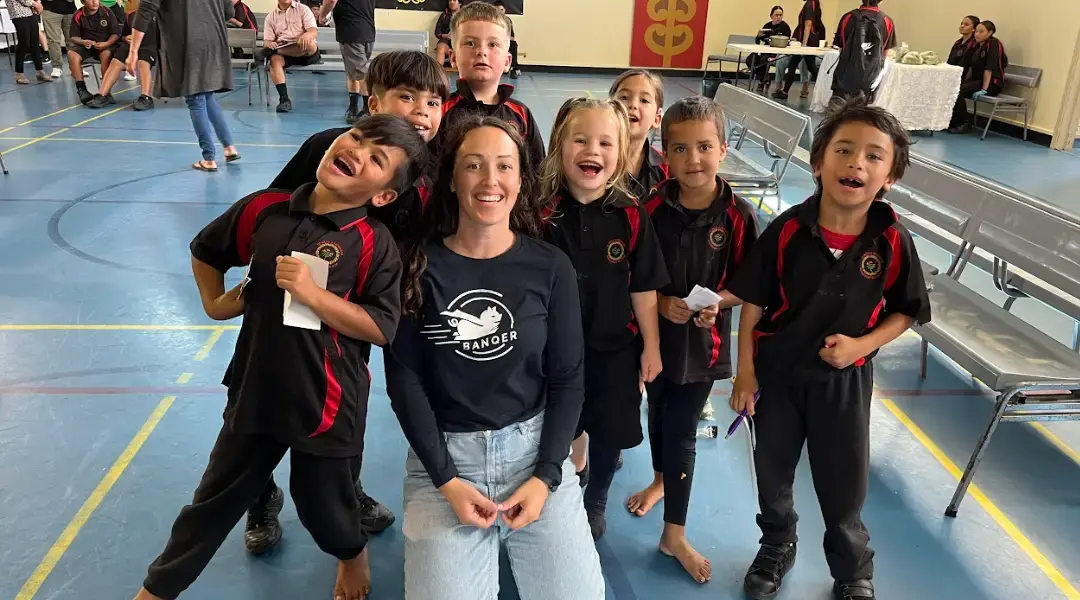

Targeted financial education
The Booster Foundation aims to build the financial resilience of Kiwis by partnering with groups who put together practical resources and tools to help build their communities’ financial capability. There is no ‘one size fits all’ approach to financial education so each course is tailored to the particular community and their learning environments.
Our target groups reflect those that Te Ara Ahunga Ora has also identified as priority groups for building financial resilience; Māori, Pacific People, and Young People.
The Booster Foundation works collaboratively with organisations to support these programmes to align with Booster Foundation values such as trust, inclusion and transparency so they meet the needs of participants.
We have collaborated to deliver programmes to students at a remote Tairawhiti school, Pasifika youth in South Auckland, Pasifika financial capability trainers (so they are equipped to deliver financial education). We have also supported Māori SME’s to get started in business, as well as online education and support for people seeking to consolidate their debt and get ahead.
We have seen how valuable it is to have tailor-made approaches that are responsive to communities’ needs. The Foundation operates on a high trust model; our partner organisations are led by the communities they serve and are best placed to know what their needs are.
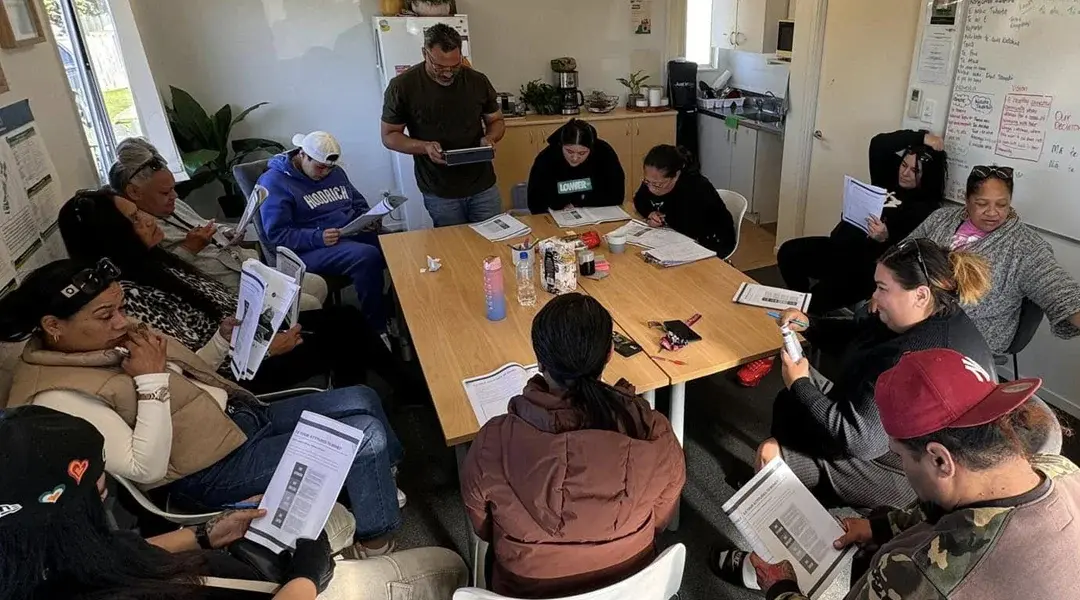
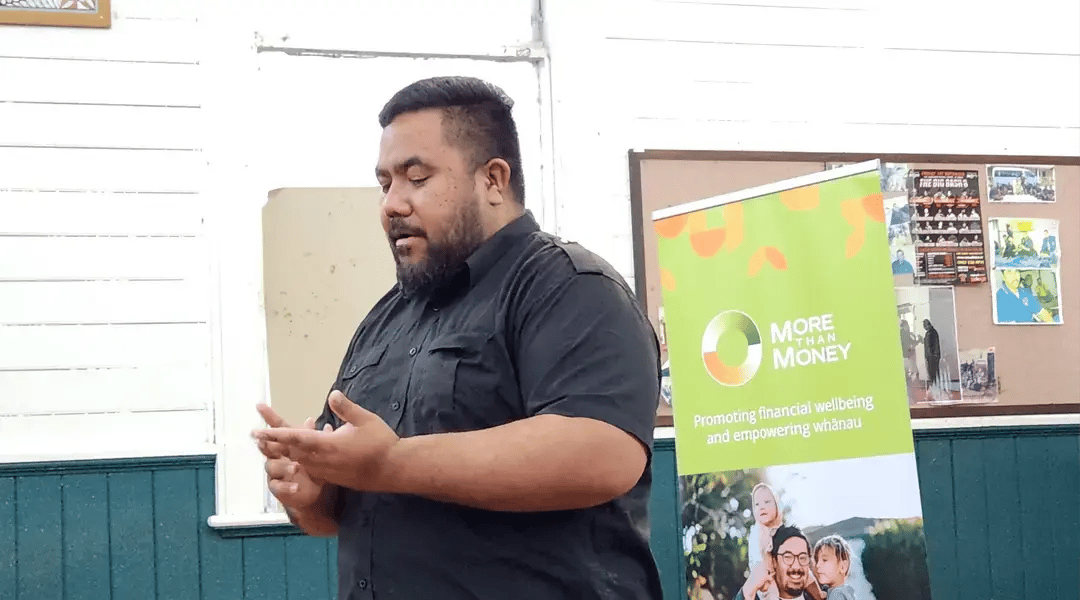
Open source
There is a lot of duplication of programmes in the financial capability sector, and a core priority of the Booster Foundation is to ensure that we help grow the sector and don’t duplicate existing programmes. With a commitment to altruism, we also believe it is important to share programmes and learnings with the wider industry so that they are open-source and can be shared and expanded elsewhere.
As part of this journey, the Foundation has developed an online interactive map where people can find key service providers in the sector, broken down by area, the services being offered, and the target group. The Financial Capability Providers map will be made freely available on the Foundation’s website in the coming months.
Over time, we will also create and share more resources on the website to support the sharing of resources and knowledge.
Collaboration
A core part of the Booster Foundation’s approach is to recognise that financial hardship and resilience is complex. We know that collaboration with groups who have expertise, reach and trust in their communities, means our programmes can have more impact.
A good example of this is IndigiShare which aims to assist Māori businesses by connecting them with a community of ‘Koha Lenders’ to grow their capital, using a tikanga-centred approach. Its ‘Te Aka Matua pakihi incubator programme, funded by Booster Foundation, empowers small and medium-sized enterprises with financial skills and knowledge to prepare them for the next steps in growing their businesses.
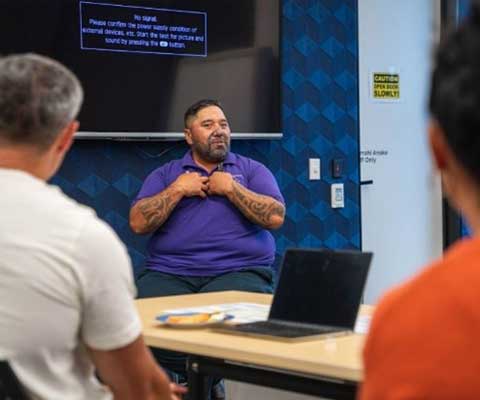
“Te Aka Matua has been instrumental in helping me refine my niche and identify key value points that align with my purpose…. This focus not only strengthened the impact of my initiatives but also uncovered additional income streams, ensuring sustainability while staying true to my values and kaupapa.” - Course participant
This collaborative approach is also used with O Le Nu’u Trust’s innovative programme to develop a fully equipped Pasifika financial capability workforce of trainers and facilitators. O Le Nu’u facilitators, who are immersed in Pasifika cultures and values, provide advice and support that resonates with their community. Using a collective village as a model, O Le Nu’u is running a pilot in three locations in Aotearoa.
Collaboration in the philanthropy space frequently involves co-funding; this initiative is co-funded with the J R McKenzie Trust, allowing us to diversify the funding we have available. It also means multiple funding partners can share their knowledge and experience with those who are running the programmes.
Collaboration extends to regular engagement with other funders of financial capability programmes to ensure we avoid duplication and share our knowledge and learnings.
Learning about money early
The Government has recently announced that financial education will be embedded into the social sciences curriculum for Year 1-10 students, from 2026. This is a fantastic development.
We have learned some lessons on what makes financial education in schools more engaging and meaningful. A Booster Foundation partnership with Cain Kerehoma from Kiko Innovation and Banqer that is now in its second year, is a pilot programme at Te Waha o Rerekohu School in in Te Araroa on the East Coast of the North Island. Its focus is to inspire tamariki to be confident with money. Cain sees this is a long- term strategy to “build our hapu’s wealth over generations and invest in the future of our tamariki, by getting primary aged kids on their long-term savings journey and kick starting their KiwiSaver savings.”
The pilot started with 30 primary school students in 2023. Of those, 21 have now enrolled in KiwiSaver, with the majority selecting a high-risk fund, reflecting the long time they have before needing to access it for a first home or their retirement.
The students have been engaged with key stakeholders including local iwi and the Ministry of Education to develop a policy position paper on rolling out a financial education and savings model across the Tairāwhiti region and beyond.
A key insight into financial education that we have gained from this experience is the importance of involving whanau. It’s crucial to normalise conversations around money in the home to help reduce the ‘shame’ people often feel when talking about money and debt and build the financial capability through engagement of all family members.
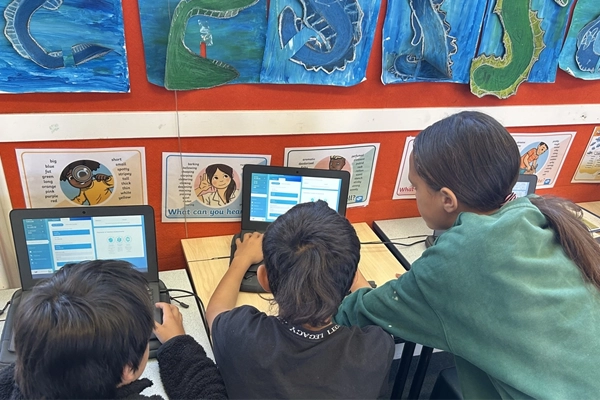
“Whanau engagement is key and enthusiasm within our school community about this enhanced learning opportunity is palpable, as we look forward to equipping our students with essential financial skills that will serve them well beyond the classroom,” says Ryno.
“Matua Ryno showed us what a need and a want is. For example, something you really need is food, a normal car and definitely a house. On the other hand, a want is something you really want but you won’t need. For example, something you want is lollies, a Lamborghini and probably some Air Jordans, mostly something that looks cool. I think I am ready for life now.” – Student
Online training and engagement
The convenience of online, at-your-fingertips options for learning about money is obvious. There are some excellent podcasts available and tools to help people budget.
The Booster Foundation funded Ngā Tāngata Microfinance (NTM) to support the launch of My Money Kete (MMK), an online education and support programme that aims to empower financially vulnerable New Zealanders to learn how to manage their money more effectively. Having a closed Facebook group provides a safe space for people to share their experiences and seek help.
Its success led to the Foundation funding MTK to further develop the depth and breadth of MMK and support a coordinator to implement the growth plan.
A survey to all 3,800 MMK members in November 2024 found:
- 80% reduced their debts
- 52% have started to make regular contributions to KiwiSaver
- 49% have started to make regular savings
- 46% have an emergency fund
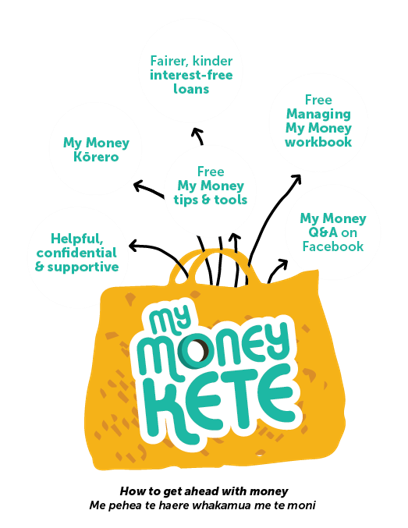
“Now I have money left at the end of the month and that feels amazing. My Money Kete is there to help you get ahead and you really feel that. And it’s free. I tell people they have to sign up, because taking control of your money is life changing.”
Massey University Financial Education and Research Centre
In addition to helping fund O Le Nu’u Trust’s initiative to develop the skills of financial capability trainers, Booster is also partnering with Te Kunenga ki Pūrehuroa Massey University Fin-Ed Centre to deliver a workforce training and development programme for all financial capability providers.
Currently, there are no formal competency standards or career development pathways for financial capability providers that are widely accepted, so this fills a gap in the sector by growing the skills of the people who help New Zealanders get more financially savvy.
“Having practitioners in this sector share coordinated, common and cooperative development training will ensure Kiwis get the best possible support to help them secure their financial futures.” - Financial Adviser Joshua Matthews
Growing New Zealanders’ financial capability is core to ensuring people have more control over their future.
We know there is significant interest among communities across Aotearoa, and plenty more to do. The Booster Foundation is keen to hear from any other philanthropic organisation that has a similar interest in helping build Kiwis’ financial resilience.
